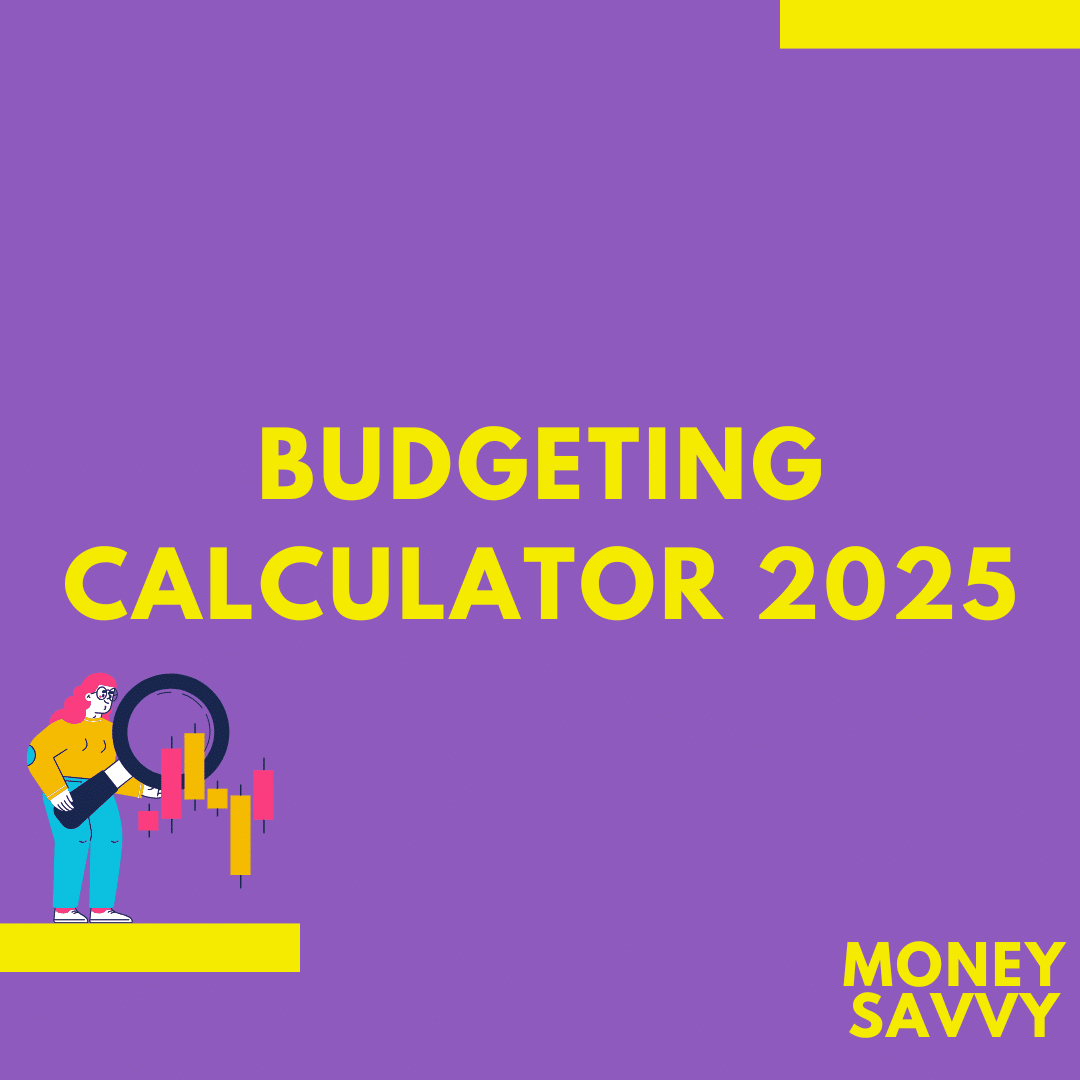
2025 Budget Calculator Guide: Take Full Control of Your Money
Budgeting Calculator 2025: Entering 2025, managing personal finances has become more crucial than ever. With rising living costs, shifting tax policies, and growing uncertainties in the global economy, knowing exactly where your money is going is the first step toward financial freedom. A well-designed budgeting calculator can help you track every dollar you earn and spend, allowing you to make smarter decisions with confidence.
Whether you’re planning to pay off debt, build savings, or just understand your current financial situation better, a budgeting calculator is no longer a luxury—it’s a necessity. This guide walks you through how to use one effectively in 2025, how government spending could affect your finances, and practical tips to secure your financial future.
📊 Features of the Budgeting Calculator 2025
A good budgeting calculator for 2025 should do more than just add numbers. It should give you insights. Here’s what you can expect from the most up-to-date tools:
Budgeting Calculator 2025
Budgeting Calculator
Results
Remaining Income: $0.00
Please enter your budget details above.
Monthly Budget Breakdown
Income & Expense Entry Made Easy
You can enter your monthly income and break down your spending into detailed categories:
- Housing (rent or mortgage)
- Utilities (electricity, water, internet)
- Food (groceries, dining out)
- Transportation (fuel, public transport, car payments)
- Insurance (health, life, auto)
- Medical & Healthcare
- Debt Repayments (loans, credit cards)
- Savings & Investments
- Entertainment, subscriptions, travel, and more
The tool allows you to input both fixed expenses and variable costs, giving you an accurate picture of where your money flows.
Instant Visual Feedback
After inputting your data, the calculator automatically generates charts and graphs showing:
- Percentage of income spent on each category
- Recommended budgeting ratios (like 50/30/20)
- Remaining disposable income
- Historical comparisons, if available
This visualization helps identify problem areas—such as overspending on dining or under-saving for emergencies—so you can adjust quickly.
Surplus & Deficit Projection
The calculator will tell you whether you’re operating at a surplus (saving money) or a deficit (spending more than you earn). This is especially useful for:
- Setting short-term and long-term savings goals
- Preparing for big life changes like moving, getting married, or starting a family
- Managing seasonal income fluctuations for freelancers or gig workers
🏛️ What the 2025 National Budget Means for You
Beyond your personal budget, national financial policy also plays a big role in how you manage your money. In 2025, several key areas of government spending may impact individuals and families:
Healthcare and Public Services
The government has allocated increased funding to certain public healthcare sectors while scaling back emergency pandemic measures. This means:
- You might see more investment in local health centers, mental health programs, and elderly care
- Subsidies for some health programs may be reduced, so double-check eligibility and coverage
- Preventive care and vaccination programs are receiving renewed focus
Tax Administration and Enforcement
Tax authorities are investing heavily in digital transformation. This includes:
- Improved digital filing platforms
- AI-based tax fraud detection
- Tighter compliance requirements for freelancers and small business owners
Make sure your tax documents are in order. If you’re self-employed, stay current with deductions and reporting updates.
Social Support and Welfare Programs
Some benefits such as childcare subsidies, basic income supplements, and energy assistance may change:
- Eligibility criteria could be tightened
- Payment amounts may vary by region
- New pilot programs (like digital vouchers or housing aid) may be introduced
It’s wise to regularly check for updates in government aid programs, especially if you’re in a lower-income bracket or have dependents.
💡 How to Build a Smart Financial Plan for 2025
A budget is more than a spreadsheet—it’s your financial blueprint. Here are detailed steps to get your plan in place:
1. Track Everything for a Full Month
Before making any changes, write down every single expense for one month. This will help you:
- Identify spending leaks (e.g., unused subscriptions)
- Calculate your real savings rate
- Understand your financial habits better
2. Set Realistic Goals
Don’t just say “I want to save more.” Be specific:
- Save 3 months’ worth of expenses in an emergency fund by July
- Pay off $1,000 of credit card debt within 6 months
- Invest 10% of income into retirement starting this month
Set both short-term and long-term targets, and write them down.
3. Automate Your Finances
Set up automatic transfers to your savings, retirement, or investment accounts right after payday. Automation removes emotion from the process and makes consistency easier.
4. Prepare for Economic Uncertainty
Inflation, interest rate changes, and global instability can affect your finances. Build buffers by:
- Maintaining a strong emergency fund
- Avoiding variable-rate loans where possible
- Diversifying income sources (freelancing, side hustles, dividends)
5. Revisit Your Budget Regularly
Your budget should evolve with your life. Reassess it:
- Monthly if you’re starting out or on a tight budget
- Quarterly if your income is stable
- Immediately after major changes (new job, medical expenses, relocation)
6. Don’t Forget to Enjoy Your Money
Yes, you should save and plan—but it’s also okay to budget for fun. Allocate a small percentage (even 5–10%) for things that bring you joy: hobbies, short trips, or personal treats.
📝 Final Thoughts
2025 offers a fresh opportunity to take charge of your money, but it also brings new challenges. Rising costs, stricter tax rules, and changing social safety nets mean you need to be proactive about budgeting. By using a smart budgeting calculator and following a solid financial strategy, you can reduce stress, reach your goals faster, and gain true financial independence.
The sooner you start tracking and planning, the more control you’ll have—no matter what 2025 throws your way.

